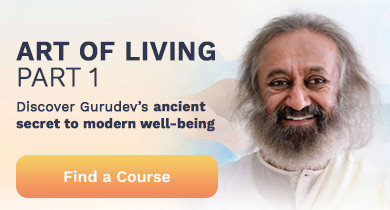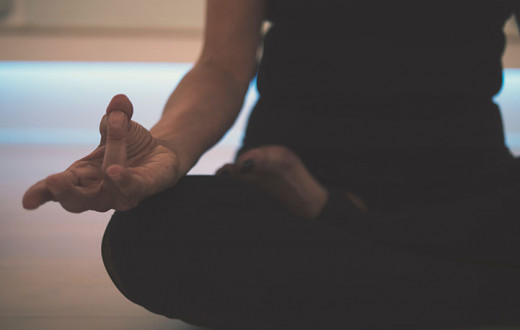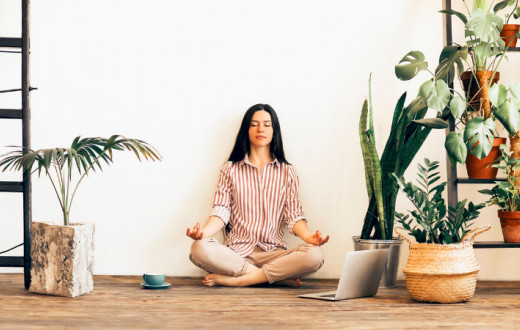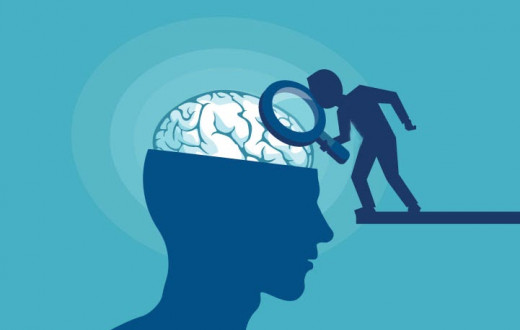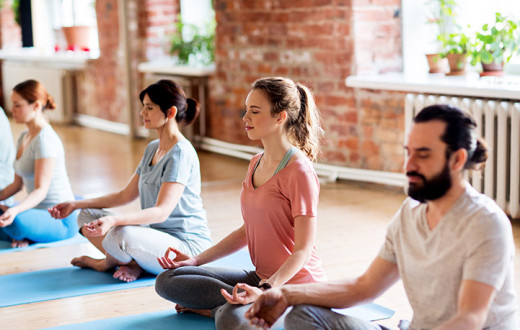
Given how stressed everyone is at the moment, it seems like everyone is taking up meditation. There are so many benefits of meditation. From cultivating a deeper sense of peace to developing self-awareness and focus, it’s no wonder it’s so popular! There’s mounting evidence to show that meditation can improve many health conditions and also offers many mental health benefits for those who practice regularly. It might not fix ALL your problems, but it’s a great start!
From top CEOs to athletes to celebrities and even homemakers, everyone is talking about how meditation has become part of their daily routine. According to Forbes, everyone from Anderson Cooper and congressman Tim Ryan, to companies like Google, Apple, and Target are integrating meditation into their schedules. And its benefits can be felt after just a few minutes of practice.
What are the top 5 benefits of meditation?
Meditation has been practiced for thousands of years. Meditation was originally meant to help deepen one’s understanding of the sacred and mystical forces of life, even leading to self-realization and enlightenment.
These days, meditation is commonly also used for stress relief and relaxation. It is also considered to be a complementary health medicine technique for the mind and body. Research on the health benefits of meditation is relatively new but promising. There are many research studies, backed by organizations like the National Institutes of Health, that have linked regular meditation to improvements in brain health and functioning, as well as many other mental and physical health benefits.
Let’s take a look at the top 5 benefits of meditation for your mind, mood, brain, heart, and well-being.
1. Stress reduction
What happens when you get stressed? Stress increases your heart rate, breathing patterns, and blood pressure. When you're constantly under stress, your adrenal glands create too much of the stress hormone cortisol. Overexposure to this hormone can affect the functioning of your brain, immune system, and other organs. Chronic stress can contribute to headaches, chronic lower back pain, anxiety, depression, heart disease, and even premature death.
So if stress gets you anxious, tense, and worried, consider trying meditation. According to the Mayo Clinic, meditation is a simple and fast way to reduce stress. Although you may not be able to eliminate all the challenges that cause you stress, meditation can help to minimize the effects of stress on your body. Additionally, meditation is one of the easiest, cheapest, safest, and most rewarding stress-relief solutions available. Spending even a few minutes in meditation can restore your calm and inner peace and help produce a deep state of relaxation.
How does meditation help in stress reduction?
Research suggests that meditation works both by calming the sympathetic nervous system and activating the parasympathetic nervous system. In simple terms, this means it lowers stress and stimulates relaxation.
2. Depression relief and mood enhancement
A research review published in JAMA Internal Medicine in January 2014 found meditation helped relieve anxiety, pain, and depression. For depression, meditation was about as effective as an antidepressant. Professor Ronnie Newman Ed.M., C.A.S.—a Harvard-trained, award-winning researcher—found that there was a 68-80% remission rate for both depression and anxiety with SKY Breath Meditation from the very first session. Research has shown SKY provided substantial relief from symptoms of depression within three weeks. And after three months individuals remained asymptomatic and stable.
How does meditation help with depression?
Stress and anxiety are major triggers of depression, and meditation can alter your reaction to those feelings.
Studies have found that meditation can change certain brain regions that are linked with depression:
1) The medial prefrontal cortex or the "me center" becomes hyperactive in depressed people.
2) The amygdala, or "fear center", is responsible for the fight-or-flight response in response to fear and perceived danger.
These two brain regions work off each other to cause depression. Research has found that meditation helps break the connection between these two brain regions.
3) Research has shown that people who suffer from recurrent depression tend to have a smaller hippocampus. Another study discovered that people who meditated for 30 minutes a day for eight weeks increased the volume of gray matter in their hippocampus.
Another study found that SKY Breath meditation increased the well-being hormone Prolactin. Watch this video for a deeper explanation.
3. Improving brain functioning
The human brain begins to decline by the time we’re 28. And by 40 it atrophies at 5% per decade. Reduction in brain matter can lead to cognitive decline. A reduction in brain matter can negatively impact your quality of life. When brain matter declines we experience a reduction in our ability to think quickly and creatively, as well as increased forgetfulness, mild cognitive impairment, and even more severe stages of dementia.
Fortunately, science has discovered a powerful connection between meditation and brain health. Research suggests that those who practiced meditation can effectively reverse the decline and even increase their brain cells.
What does meditation do to the brain?
Research published in NeuroReport shows that meditation increases gray matter in the frontal cortex, specifically the prefrontal cortex, an area of the brain responsible for regulating emotions and supporting creative, effective decision-making. So meditating can actually help you to make better decisions.
Find out more here about how meditation can change your brain, including your memory, emotional health, fear response, and more.
4. Improving heart health
Heart disease is the cause of death of over a half-million people every year in the U.S. That adds up to one in four deaths. While diet is a major contributing factor, stress affects heart health significantly. According to the Centers for Disease Control, “High blood pressure was the primary or contributing cause of death in 2017.” Over time, high blood pressure makes the heart work harder to pump blood, which can lead to poor heart function. High blood pressure also contributes to atherosclerosis, or a narrowing of the arteries, which can lead to heart attack and stroke. However, a regular practice of meditation can reduce heart strain.
How does meditation help with heart health?
Meditation appears to control blood pressure by relaxing the nerve signals that coordinate heart function, blood vessel tension, and the “fight-or-flight” response that gets activated in stressful situations. Meditation also has a positive impact on heart rate variability. Cardiologist Dr. Deepak Bhatt, a professor at Harvard Medical School, states “[Meditation] can lower your heart rate, blood pressure, breathing rate, oxygen consumption, adrenaline levels, and levels of cortisol, a hormone released in response to stress."
Independent research has shown that when SKY Breath Meditation is practiced by both healthy individuals and those already suffering from hypertension (high blood pressure), there's a significant drop in both heart rate and blood pressure in as little as 15 days. The astonishing fact is that these changes still occur independently of any dietary changes. Watch this short video to learn more.
5. Improving overall health and wellbeing
A recent Yale study supported previous independent research that showed SKY significantly increased energy levels, social connection, and life satisfaction.
Emma Seppälä Ph.D., co-director of the Yale College Emotional Intelligence Project, shares her insights and research on this breath-based meditation technique.
Meditating has a spiritual purpose too. "True, it will help you lower your blood pressure, but so much more: it can help your creativity, your intuition, your connection with your inner self," says Burke Lennihan, a registered nurse who teaches meditation at Harvard University Center for Wellness.
Meditation is also used as cognitive behavioral therapy and as an alternative medicine to help with psychological distress and many other health conditions.
Meditation serves as a powerful mind-body tool for a diverse range of needs and offers many health benefits. Meditation helps with conditions like depression, social anxiety disorder, post-traumatic stress disorder, insomnia, substance abuse, reducing high blood pressure, reducing pain, enhancing brain health, immune functions to better sleep, and more. Study after study shows that practicing meditation regularly can significantly enhance your overall physical health and mental health.
Give meditation a try with this quick start guide
We are happy that you are giving meditation a try!
From personal experience, I can tell you that making meditation part of my daily routine has been one of the best things that I’ve done for myself!
The beauty, as well as the simplicity of meditation, is that you don't need any fancy equipment. All that's required is a willingness to practice.
Like anything else, meditation is a skill that can be learned and just takes some training and practice. But it is not as hard as you think. On the contrary, meditation can actually be very simple once you learn some basics. You can begin today with just a few steps.
Step 1: Find 5-10 minutes and sit in a quiet place
Step 2: Sit in a comfortable position, either in a chair or on the floor. Keep your back and neck straight, yet relaxed with eyes gently closed. Keep your palms facing up on your knees or in your lap
Step 3: Begin by taking 2-3 mindful breaths with a gentle smile on your face
Step 4: Gently and step-by-step scan through your whole body starting from your feet, gradually moving up towards your head. This body scan will relax your whole body
Step 5: Be at ease with any noise in your surroundings, discomfort in your body, or floating thoughts and emotions in your mind. Accepting and being at ease are the best ways to help prevent you from being distracted while meditating
Pro tip: Meditation is a naturally occurring state of the mind. The more skilled you become at meditation, the "deeper" you can tap into this state. But at the same time, remember it's also natural for your mind to house a swarm of thoughts and keep swinging between past and future. Don’t resist or fight with your thoughts. Accept them and be at ease with them
Step 6: Sit still as much as possible, doing nothing for the next few minutes. That’s it! You are meditating!
Step 7: After 5-10 minutes of meditation (if you like you can use a soft beeper or meditation timer), slowly and gradually open your eyes. Notice if you feel more relaxed since when you started and give yourself a pat on the back
Daily meditation practice is the key to making a habit
You can practice meditation using the above technique (steps 1-7) to get started. As you start feeling more comfortable meditating for 5-10 minutes if you like you can increase the duration to 15-20 minutes.
Oftentimes it is easier to start with a guided meditation. You can check out some of the free meditation on the Art of Living Journey App. You’ll find some very relaxing meditations ranging from 5-30 minutes!
Going deeper: nurturing a personal meditation practice
The above practice is a good place to start. However, it’s also just scratching the surface.
If you are ready to dive deeper, consider learning from a trained teacher or meditation expert. Like driving a car or learning a sport, meditation is best learned from a teacher. Investing some time and resources to take a live class with a mentor that you can talk with is totally worth it!
There are many meditation techniques. Some of the most well-known techniques include mindfulness meditation, transcendental meditation, loving-kindness meditation, concentration meditation, breathing, and mantra meditation, to name just a few! As you can see there are many meditation techniques and meditation programs available.
An important tip here is to choose a style that is easy yet profound, sustainable, enjoyable, and is backed by tradition as well as science.
I have explored quite a bit. And I would recommend that beginners consider SKY Breath Meditation, in which rhythmic breathing is your anchor. I have practiced this technique every single day for a decade. The quality of my meditation, as well as my life, has transformed for the better in every way as a result.
A 2019 study at Yale University evaluated the impact of three well-being programs on undergraduate students: SKY Breath Meditation, Mindfulness-Based Stress Reduction, and Emotional Intelligence, compared to a control group. Of all the programs, SKY Breath Meditation had the most benefits—reducing stress and depression, enhancing mental health, social connection, mindfulness, and positive emotions.
Want to know more about SKY?
Join us for a free online introductory session at your convenience. Needless to say, the sooner the better! You will also learn about meditation courses offered by the Art of Living Foundation.
If this article helped you to understand what meditation does to you, we are happy. And if it inspired you to start your meditation journey today, we are happier. Here is a wish that you enjoy every step and milestone! We are available to help at any point!
Disclaimer: This content on the Art of Living Blog is not intended to be a substitute for professional medical advice, diagnosis or treatment. Always seek the advice of your physician or other qualified health providers with any questions you may have regarding a medical condition. Any links to third-party websites are provided as a convenience only and the Art of Living Blog is not responsible for their content.

